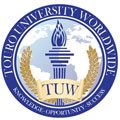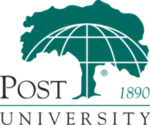 The demand for financial analysts, planners, and managers is growing faster than any other professional field. Financial leaders with organizational decision-making skills are greatly needed within all types of industries. In fact, between 80 and 90 percent of healthcare, pharmaceuticals, technology, energy and utilities, finance, and manufacturing companies are planning to hire MBA graduates in the near future. Aside from the rising demands of commercial enterprise, economically game-changing events such as increased digitalization and globalization are behind the need for trained professionals in organizational change and innovation. In order to thrive at the forefront of modern business, today’s leaders need the strategic skills and knowledge required to respond to those changing global market forces.
The demand for financial analysts, planners, and managers is growing faster than any other professional field. Financial leaders with organizational decision-making skills are greatly needed within all types of industries. In fact, between 80 and 90 percent of healthcare, pharmaceuticals, technology, energy and utilities, finance, and manufacturing companies are planning to hire MBA graduates in the near future. Aside from the rising demands of commercial enterprise, economically game-changing events such as increased digitalization and globalization are behind the need for trained professionals in organizational change and innovation. In order to thrive at the forefront of modern business, today’s leaders need the strategic skills and knowledge required to respond to those changing global market forces.
Whether you are looking to gain a competitive advantage in your chosen field or are looking for a new direction, earning an MBA in finance will teach you an integrated view of business organizations, the competencies required to collaborate cross-functionally, and a proficiency in the soft skills employers are looking for in candidates. On top of the business leadership skills and managerial and communication skills expected from MBA graduates as a whole, a background in mathematics is an essential part of a concentration in finance. What further differentiates a traditional MBA from an MBA in finance is that a finance emphasis will delve deeper into the areas of securities, hedge funds, international finance, risk management, portfolio management, and small- and large-business finance. Basically, an MBA in finance balances mathematical diligence with managerial strategy and can be a good way to direct your career towards senior- and executive-level management positions in the financial sector. Thus, the ideal program is one that will prepare you with a robust foundation in excellent analytical skills, solid strategic thinking, and exceptional teamwork. The following online MBAs in Finance offer comprehensive grounding in business fundamentals with multiple options to customize your degree depending on your career goals. For your convenience, the programs were ranked based on affordability, flexibility and prestige.
Methodology:
- Affordability (1/3): Combined analysis of overall tuition of the program, financial aid or scholarship assistance programs, and estimated cost per credit hour for in-state and out-of-state students.
- Flexibility (1/3): The number of flexibility-enhancing elements specific to the degree program including teaching philosophy concentrations, degree specialties, prior learning or life experience credit options, accelerated or self-paced courses, personalized student advisement/guidance, and competency-based credit options.
- Academic Prestige (1/3): The academic prestige of the parent institution operationally defined through the analyses of rankings and reviews of prominent education review entities such as US News & World Report and The Princeton Review.
1. Benedictine University

Benedictine University (BenU), founded in 1887 by Benedictine monks of Chicago, is a top-tier private, Catholic institution. Based in suburban Lisle, IL, BenU offers students a relaxed campus environment with easy access to the entertainments of the Chicago area. Offering 56 and 19 undergraduate and graduate programs respectively, the university believes in providing higher education strongly rooted in the Catholic teachings of St Benedict. Regionally accredited by the Higher Learning Commission, BenU is currently tied at #220 “National Universities” by U.S. News & World Report and ranked the best “Values-Driven Leadership Program” by HR.com’s LEAD Awards. The university enrolls approximately 3,400 undergraduates, 6,000 graduate students, and 500 online students annually. BenU offers a 12:1 student-faculty ratio and 71% of classes cater to less than 20 students.
Benedictine University College Of Business’s MBA in Finance is fully online and will give graduates a robust business foundation in how to analyze and interpret financial information from a managerial perspective as well as the soft skills that employers desire. The basic curriculum can take as little as 1 year to complete and requires 8 core and 4 elective courses. For the financial management concentration, students will focus on analyzing and interpreting financial and economic information needed for organizational decision-making. The concentration requires 3 additional courses for a total of 15 courses. The program offers prestige due to Crain’s Chicago Business being listed as the sixth largest MBA program in the Chicago area in 2016. Finally, the program offers affordability thanks to a reasonable $600 credit-hour cost.
- Homepage
- Tuition Per Credit Hour: $600
- Flexibility-enhancing program components: Accelerated
2. Touro University Worldwide

Touro University Worldwide (TUW), founded in 1998, is a private, Jewish-sponsored, nonprofit higher and professional education institution. While TUW specializes in providing specialized and doctorate-level online degrees, Touro College Los Angeles (Lander Campus) is a division of Touro University Worldwide and offers a physical campus for many undergraduate programs. Accredited by WASC’s Senior College And University Commission (WSCUC)–a regional accrediting agency serving a diverse membership of public and private higher education institutions, Touro University Worldwide matriculates roughly 250 undergraduate and 350 graduate students, and offers a student-faculty ratio of 8:1.
Touro University Worldwide’s 100% online MBA degree program is structured to give students the flexibility needed to adjust their course-load based on the demands of personal life. The roughly 12-month program prepares graduates for practical and academic leadership, managerial skills, and other various disciplinary skills needed in the business environment. The 36-credit-hour curriculum requires 9 core and 3 concentration-specific elective courses; students can meet personal career goals by choosing from a selection of 5 concentrations, including finance. Core coursework in finance includes budgeting, investments & portfolios, and global finance. The program provides affordability with a $500 credit-hour cost and a team of tuition-assistance counselors who are available to help reduce expenses and find the best assistance programs available. The complete library and resources needed for the program are available online and included in the tuition so students can save on textbooks. Finally, as stated, the program guarantees flexibility thanks to 5 concentrations.
- Homepage
- Tuition Per Credit Hour: $500
- Flexibility-enhancing program components: Accelerated
*
3. Washington State University
![]()
Washington State University (WSU), founded in 1890, is a public research institution. The school can be found on a rural, utilitarian 1,742-acre campus in Pullman, WA–Bloomberg Businessweek selected Pullman as the “Best Place to Raise Kids” in Washington. Accredited by the Northwest Commission On Colleges And Universities (NWCCU)–the regional authority on educational quality and institutional effectiveness of higher education institutions in the 7-state Northwest region–WSU is currently ranked #143 Best National Universities and #95 Best Colleges for Veterans by U.S. News & World Report. Washington State University matriculates roughly 24,500 undergraduate students, promises a student-faculty ratio of 15:1, and 35.4% of classes cater to less than 20 students.
Washington State University’s Online MBA promises to deliver high-level management skills and strategies, as well as to develop advanced business knowledge across a wide range of industry and global perspectives. The 36-credit-hour program has an expected completion time of 22-29 months, requires 7 core and 3 elective courses, and offers up to 16 credit-hours of foundational coursework for those who may need it. Apart from 3 capstone courses worth 6 credit-hours, flexibility is offered through 3 additional courses that must be selected from your chosen concentration–or any concentration when selecting the General track. Core focus is on strategic leadership and functional business tools while the goal of the capstone experience is for you to deliver a full business plan as your final project. The program offers prestige thanks to a #27 ranking for Best Online MBA Programs in 2017; the program has ranked in the top 15% for the last 5 consecutive years. Finally, the program promises affordability because of a $587 credit-hour cost.
- Homepage
- Tuition Per Credit Hour: $587
- Flexibility-enhancing program components: N/A
4. University of Florida

The University of Florida (UF), established in 1853, is a public research institution. Top faculty in the country includes 2 pulitzer prize winners. For over 3 decades, UF has been a member of the Association of American Universities, the prestigious higher-education organization comprising the top 63 public and private institutions in North America. The school can be found on a suburban, 2,000-acre campus (that was recently renovated and expanded) in Gainesville, FL– ranked among the “best places to live and play” in the United States by National Geographic Adventure. Accredited by the Southern Association Of Colleges And Schools Commission On Colleges–the regional accreditor which monitors, evaluates, and accredits education institutions in the 11-state Southeast area–UF is currently ranked #14 Best Public Universities and #50 Best National Universities by U.S. News & World Report. University of Florida enrolls approximately 52,000 students, promises a student-faculty ratio of 21:1, and 48.6% of classes cater to less than than 20 students.
University Of Florida’s accelerated, online MBA is designed for students who graduated in business in the last 7 years, while the 2-year option is recommended for undergraduate business and non-business majors who have been in the workforce for more than 7 years. Regardless of the option, a minimum of 2 years of full-time, professional work experience is required. Although offered 100% online, periodic residencies allow students to not only interact with faculty and classmates but to start building network connections. The accelerated option requires 32 credit-hours and approximately 16 months while the standard option requires 48 credit-hours and roughly 27 months. The 2-year option focuses on building a strong foundation in core business areas such as finance, marketing, management, operations, and economics. For both options, students can choose from 4 areas of focus including finance. The program guarantees prestige because of a #4 Global Business Schools ranking by the Financial Times, a top-50 Best Business Schools ranking by Bloomberg, and AACSB accreditation. Finally, as stated, program flexibility comes from the 2 available program lengths.
- Homepage
- Tuition Per Credit Hour: $1244
- Flexibility-enhancing program components: One or two year tracks
5. Southern New Hampshire University

Southern New Hampshire University (SNHU), founded in 1932, is a private, nonprofit university located in Manchester, NH. Despite its humble beginnings, a recent leadership change has turned SNHU into one of the largest universities in the country, enrolling 34,000 online and offering over 200 programs online alone. SNHU is known for its innovative curriculum offerings; for instance, SNHU is the first university to offer a 3-year Bachelor’s in Business Administration. Southern New Hampshire University currently ranks 12th best “Regional University South” in U.S. News National Best College List 2017. Including online students, the university enrolls approximately 63,000 students.
Southern New Hampshire University’s MBA in Finance focuses on the traditional, practical, and valuable skills and working knowledge in areas such as marketing, strategic management, and information technology. The 36-credit-hour program requires 9 core, 3 elective, and 5 foundational courses (that may be waived) and has an approximate completion time of as few as 15 months if taking 2 courses per week. The core curriculum offers a strong business foundation with an added focus on finance–course examples include Capital investments, Capital financing & Structure, Securities Valuation Techniques, and Investment Portfolio Management, and Risk Management. The program provides prestige due to an accreditation from the New England Association of Schools and Colleges’s Accreditation Council for Business Schools and Programs. Furthermore, the program offers affordability due to a reasonable $627 credit-hour cost. Finally, the program guarantees flexibility because students can choose from over 25 concentrations.
- Homepage
- Tuition Per Credit Hour: $627
- Flexibility-enhancing program components: Accelerated
6. Johns Hopkins University

Johns Hopkins University (JHU, or Hopkins), founded in 1876, is a private research university, the first research university in the nation, and one of the first American university to enroll a black student. With its rich history, Hopkins is highly selective and has an acceptance rate of only 13%. The school occupies a spacious, urban-but-peaceful, tree-lined 140-acre campus in the harbor town of Baltimore, MD. Accredited by the Middle States Commission on Higher Education–the regional authority on higher educational effectiveness for the Mid-Atlantic area–JHU currently ranks #10 National Universities and #20 Best Value Schools by U.S. News & World Report. Johns Hopkins University matriculates approximately 6,500 undergraduate students, guarantees a student-faculty ratio of 8:1, and 73% of classes cater to fewer than 20 students.
Johns Hopkins University’s Flexible MBA is a part-time, innovative program where key focus areas are enterprise risk management, healthcare management, financial business, and real estate & infrastructure. Hopkins’ program is one of the most intensive on the list with an estimated completion time of about 2.5 years. The 54-credit-hour curriculum requires 4 core courses, 10 required foundational business courses, and 4 concentration courses specific to financial businesses. Apart from the ability to choose from 1 of any 4 concentrations, Hopkins offers additional flexibility by allowing students to select 2 areas of concentration simultaneously. The program is prestigious because of its AACSB-accreditation–something less than 5% of international business schools can claim–and a distinguished faculty recognized as strong innovators, leading researchers, and top practitioners in their fields.
- Homepage
- Tuition Per Credit Hour: $1330
- Flexibility-enhancing program components: N/A
7. Regis University

Regis University (RU) is a co-ed, Jesuit university in New Mexico and was established in 1877. Soon after, it relocated to its present location in Denver, Colorado. Regis University is a community-oriented, military-friendly university recognized for its strong student support services, high-quality education, and prestige in the marketplace. In fact, Regis University’s ranking in the 2017 edition of Best Colleges is Regional Universities West, 23. One of the school’s strong points is its generous transfer-credit policy offering up to 90 credit hours transferable from regionally-accredited universities making it one of the most flexible programs on our list. Students can benefit from a small student-to-faculty ratio of 14:1 and personalized attention with 64.2% of classes having less than 20 students.
Regis University College of Business & Economics’ MBA in Finance and Accounting is based on Jesuit values, prepares students to develop managerial expertise through applications-oriented instruction, and has an estimated completion time of 18-24 months. The 36-credit-hour curriculum requires 6 core, 3 elective, and 2 specialization courses–including Interpreting Accounting Information & Financial Decision Making and an MBA capstone. Although the per-credit-hour cost is a little higher than some of the other schools on the list, Regis is a private university, so the average need-based financial aid award is roughly $22,000 (not including merit- and talent-based awards. Finally, the program guarantees flexibility thanks to certificate and accelerated options.
- Homepage
- Tuition Per Credit Hour: $780
- Flexibility-enhancing program components: Accelerated
8. Post University

Post University, established in 1890, is a private, for-profit institution. Career services will help prepare students future marketability with the Career Planning Timeline designed for all class levels. For over two decades, Post University has been a pioneer in online education offering incredibly innovative and robust programs. The establishment sits on a suburban 58-acre campus–famous for its over a half-century-old Post tree, which also serves as the school logo–in Waterbury, CT (its main campus). However, the school has 3 regional satellite sites in the cities of Meriden, Danbury and Wallingford. Accredited by the Connecticut Department Of Higher Education and also by the New England Association Of Schools And Colleges (NEASC)–Post currently ranks Tier 2 Regional Universities North by U.S. News & World Report. Post University matriculates roughly 6,812 undergraduate students, offers a student-faculty ratio of 19:1, and 80.9% of classes cater to fewer than 20 students.
Post University’s Master of Business Administration (MBA) is a self-paced program designed for working professionals who want to get a competitive edge in the business world. After taking 3 required foundational MBA courses, students can then select a concentration in finance. The 45-credit-hour program requires 6 core courses, 4 elective courses, and a capstone research project/graduate seminar that cover knowledge and applied skills in management of financial institutions, analysis of financial statements, creation & management of financial portfolios, and a “working knowledge of the impact of public policy [on] financial principles”. The program promises prestige thanks to a national accreditation from the Accreditation Council for Business Schools and Programs (ACBSP). Moreover, the program offers affordability due to a reasonable $586 credit-hour cost. Finally, the program offers flexibility thanks to 8-week-long modules with 6 start dates every year.
- Homepage
- Tuition Per Credit Hour: $586
- Flexibility-enhancing program components: N/A
9. School Removed
10. Colorado State University

Colorado State University (CSU), founded in 1870, is a public research institution and the flagship campus of the Colorado State University system. The school sits on an urban-but-verdant 586-acre campus in Fort Collins, CO at the base of the Rocky Mountains foothills-oughly an hour away from Denver and only two hours from major ski resorts. Fort Collins has been ranked by Money as the “best place to live” in the US. Also accredited by the Higher Learning Commission, CSU currently ranks #129 Best National Universities by U.S. News & World Report. Colorado State University matriculates approximately 24,500 undergraduate students, promises a student-faculty ratio of 18:1, and 37.6% of classes cater to fewer than 20 students.
Colorado State University’s fully online MBA provides a cutting-edge curriculum designed for busy professionals who want to immediately apply relevant skills, concepts, and analytical tools to on-the-job-decisions. The 42-credit-hour program requires 16 core and 6 elective courses and has an approximate completion time of as few as 21 months. Part of the core requirements is a capstone project worth 4 credits, and to allow for concentrations, students select 6 courses (each worth 1 credit) among the 9 finance electives offered. The program promises prestige due to an AACSB accreditation, but also thanks to a #19 Best Worldwide Online MBA Programs and a #12 Best American Online MBA Programs ranking from Financial Times in 2017. Furthermore, the program can offer affordability as shown by its #8 “value for money” ranking–also from Financial Times in 2017. Finally, the program promises flexibility due to an accelerated option.
- Homepage
- Tuition Per Credit Hour: $946
- Flexibility-enhancing program components: N/A
Carrie Morris
Author
Warren Dahl
Editor-in-Chief
